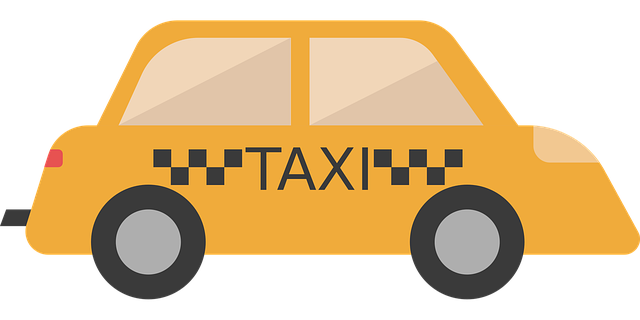Pay to Pave: Most counties have vehicle registration fees to fund road work – KPCnews.com
You get what you pay for when it comes to roads, which is why a majority of Indiana counties charge annual vehicle fees to help bolster their road budgets.
Across Indiana, 3-in-5 counties charge motorists some type of annual fee when they register their vehicles, with that money going directly to support road work in their counties.
However, there are still 37 counties in Indiana that have yet to adopt any fee, with sizable holdout bastions primarily in northwest and southeast Indiana.
Without county vehicle fees to supplement the budget — money that goes not just to the county highway department but also gets shared among all of the municipalities, too — communities are solely reliant on gas tax money doled out by the state to pay for their pavement.
As that pot has been shrinking over time and as material costs and labor have become more expensive, counties that aren’t supplementing their income may find their budget for road work getting progressively smaller year after year.
Majority of state charges fees
Locally, LaGrange, Steuben and Noble counties all have vehicle fees, while DeKalb County remains the only county in the northeast Indiana region that hasn’t adopted it.
Across the state, 55 counties charge a vehicle registration fee of some type, while 37 counties still have not implemented one.
County vehicle fees are charged annually when a person registers their vehicle at the BMV, on top of state fees collected at that time. Those fees are charged on all registered vehicles either as an excise surtax or wheel tax, depending on the type of vehicle. All registered vehicles including passenger cars, vans and SUVs, motorcycles, larger trucks and trailers are assessed, although at varying amounts based on vehicle type and/or weight and at rates set by local county councils.
County fees for passenger vehicles can be charged one of two ways. Some charge a flat rate of $30 for every passenger vehicle, like Allen County which has a $20 flat rate.
Flat fees are simpler in that they’re the same for everyone regardless of their vehicle, and that method is more popular, with 39 of the 55 counties that have vehicle taxes choosing that route. Across the state, $25 per vehicle is the most popular flat-rate fee, ranging from as low as $10 to as high as $50.
Other counties — including all three of LaGrange, Steuben and Noble — instead charge a fee based on a percentage of the state excise tax, which is based on the age and value of the vehicle.
Local counties hold the distinction of holding the high and low ends among counties that utilize a percentage charge. Steuben County has the state’s highest passenger vehicle surtax rate at 20%, while LaGrange County has the state’s lowest at just 2%.
Noble County had been at a 10% surtax rate, but raised that charge this year to 15% to fund ongoing road maintenance and improvements.
All of the other counties in the state that use the percentage method charge a 10% surtax, with the exception of Brown County at 17.5% and Wells County at 6%, making Noble County the third-highest percentage charge in Indiana.
Percentage counties also set a minimum fee, a floor that people with old cars will pay. LaGrange County has a minimum of $10, Steuben County’s minimum is $25 and Noble County just raised its minimum to $30, so that’s what most people with older cars — typically around 10 years old or older — end up paying.
The percentage method is more variable. People with brand new vehicles will pay significantly higher amounts, while people still getting around in old clunkers will pay much less. For example, a person with a brand-new car valued over $42,500 in Noble County will pay $79.80 in local fees. But a person in LaGrange County with an old, low-value vehicle will only pay the county-set minimum fee of $10 per year.
Only 16 of the 55 counties that have vehicle fees use the vehicle excise surtax percentage.
To the driver, flat-rate counties are typically cheaper for people with newer cars, but often more expensive for people driver older cars as compared to the percentage method.
Fees pay for road maintenance
Local fees can make up a significant slice of a county’s annual funding for road work.
Steuben County Highway received about $1.78 million as its share of the county fees, Steuben County Engineer Chip Porter said. Noble County Highway was dispersed about $1.1 million annually under its former 10% surtax, with expectations that increases passed earlier this year would boost revenue to about $1.95 million annually, according to Noble County engineer Zack Smith.
The Noble County Highway Department receives close to $4 million annually from the state’s gas taxes as its share, so the expected revenue from its 15% surtax and wheel taxes will make up about one third of the total budget.
That being said, the county registration fees are used exclusively for road maintenance, money Noble wouldn’t have to do work if it didn’t have those taxes, Smith said.
“It goes straight to road improvements. There’s no overhead necessarily coming out of that because we’ve already taken out of our normal MVH (state motor vehicle highway funds),” Smith said.
“You have payrolll. You have employee insurance, PERF (public employee retirement fund), fuel, you’ve got to keep up your facilities. There’s a lot of overhead just to run the highway,” Smith said. “We’re not making money by plowing snow, but people expect that service of us.”
State gasoline tax revenue has been in long-range decline as vehicles have become more fuel efficient and electric vehicles have become more prevalent. Indiana did hike its gas tax in recent years, which did allow some additional money to flow to local governments, although the state kept the lion’s share of it.
Noble County raised its vehicle fees in 2018 at the same time the state was raising its gas tax, on the expectation that the county would see more money. But then the state changed its distribution formula, giving less to counties and municipalities than it originally forecast and that was a primary reason why the Noble County Council opted to raise it again this year at Smith’s urging.
County leaders have no qualms about expressing their displeasure that local governments are essentially cornered into adopting the taxes.
Vehicle registration fees are technically an option tax — counties don’t have to adopt them — but like most county option taxes they’re the only way to make up for revenue the state isn’t going to tax and distribute itself.
That was the journey that Steuben County took, county council President Rick Shipe said. In the past, Steuben County had been using Major Moves funds from the sale of the Indiana Toll Road to pay for road maintenance around the county, but that money was a big lump sum and not a sustainable year-to-year revenue stream. As it starting to deplete, county leaders new they needed a change.
“We lobbied the state many times just about trying to get a gas tax. That seemed to be a little more fair than this wheel tax. They kept saying ‘We gave you an avenue to go and you haven’t used it yet so we’re not going to talk,'” Shipe said. “So that left us with the wheel tax and went through the process, public hearings, and decided, if we were going to pass this tax we were never going to revisit and raise it. So we put it at a level that was high enough and would give the county highway the money they needed.”
Steuben County does have the highest surtax percentage and flat-rate wheel taxes in the state, but Shipe said the funding that’s come in has allowed the county to make incremental progress in improving its overall road network.
“It’s been holding the line on what they call our maintenance, preservation. We’ve been able to do our preservation and do some reconstruction on some roads that have really needed it,” he said.
Noble County Council President Denise Lemmon had similar sentiments about her county, heaping praise on the preparation, planning and budgeting Smith has done to make consistent improvements across the county.
“The quality of our roads have improved, so less poor roads than ever before, the percentage of fair to good roads so much higher,” Lemmon said. “We’re going to keep on that trend. We want to answer the folks that talk about ‘My road is dangerous, my road is gravel,’ all the things that we know to be true, that have been consistently improved.”
Aside from just having more money available to don more crack sealing, chip-and-seal, mill and paves or reconstruction, one other major benefit of having the extra wheel tax revenue is having money available to chase after grants — a point noted by Lemmon, Shipe and Smith.
Indiana offers up to $1 million per year in Community Crossings grants for rural counties that can put up a 25% match, while federal aid grants typically require a 20% match or a 10% match for critical safety improvements.
That’s one area where Noble County blows out most other rural communities, as Smith has been extremely aggressive on chasing multi-million grants for big projects like bridge replacements that the county would never be able to afford out-of-pocket.
“We have more federal aid projects than most rural counties. Right now we have 11 in development. If you’re going to look around you’re going to see them have one, two or none,” Smith said. “Having a good wheel tax helps pay our participation, which is usually 20%.”
Without that extra money in the bank, counties either have to sacrifice regular maintenance to earmark match money or simply give up opportunities to multiply their funding by obtaining grants.
When asked if they think they’d be able to offer the same kind of roads without registration fees, local leaders’ answers were all an obvious “no.”
“In the grand scheme of things, this has to be done to continue the consistent work that (highway superintendent Richard Rogers) and Zack and others at the highway department do,” Lemmon said. “We know if we give them the resources they’re going to do the best job possible with it.”
“I don’t know where we’d of got the money to do it, between equipment and the work, we’d either have the money or roads that were undrivable, one of the two,” Shipe said. “The cheapest road to maintain is a dirt road or gravel road, we could take them all back to that, but I don’t think people would like that.”
DeKalb may reopen discussion
DeKalb County remains the only northeast Indiana county that hasn’t adopted a vehicle tax yet — Wabash and Marshall counties are the next closest ones without — but county council members are going to take another look at the issue as this year closes out.
County Council President Rick Ring said he would be sharing some information from the county’s financial consultant with his colleagues at this Tuesday’s meeting, with plans to possibly open discussion during the December meeting.
KPC Media reported in July that DeKalb County has about 40% of its total road inventory as gravel, the highest percentage in the four-county area. Neighboring Noble County, for comparison, has just 9% of its roads as gravel.
The council briefly discussed the issue at its July meeting after that story published and said it would seek out some figures from its financial consultant.
“It is on the agenda for a brief discussion next Tuesday at the council meeting because we are going to have to take a look at it again seriously,” Ring said. “We have some data that our financial consultant provided us with and I’ll be passing that out, not for any discussion or any type of vote this week, but so everyone will get the information and we’ll be able to talk.”
The topic of county vehicle fees has come up multiple times in the past, and DeKalb County has opted not to go that direction each time, Ring said. He noted he voted against implementation at least once during his time on the council.
As he has stated in the past, Ring wanted to be clear from the get-go that review of a possible vehicle tax is not related to the county’s beleaguered highway department garage project that has been an issue throughout this year due to its expected cost.
If DeKalb County were to enact vehicle fees — it would have to be done before mid-year in 2023 in order to be eligible to go into effect in 2024 — the money collected will be solely devoted to road maintenance.
“I don’t want anybody to think we’re looking at this because of the highway garage situation. That is one thing I’ve checked with state board of accounts,” Ring said. “If we do implement this, I want to be very clear that this is going to the roads.”




